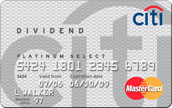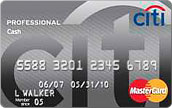When is the last time you looked over the list of rewards cards? Here's a post for those people who are responsible with their credit and are looking for a way to maximize the rewards they can earn by using credit cards. Note: you actually have to be approved and must use the card before you can get the reward . . .
There are a few new ones out there that you might want to consider. Here's a link to a story on how to maximize your rewards.
A blog documenting the journey of Dave, Amanda, Jude, Max, Jorie -- and Pacey and Ellie!
Showing posts with label personal finance. Show all posts
Showing posts with label personal finance. Show all posts
Sunday, June 29, 2008
Thursday, June 12, 2008
News and Stocks
Tuesday, March 4, 2008
On the point of tipping
No, this post isn't on the topic of our new baby, or a missive lamenting how we've reached our breaking point in the week hours of the morning. Today's topic is gratuities.
Why do we tip? If you're interested in the subject, a recent article from the Wall Street Journal offered a nice, historical perspective on tipping. Like many finance-related topics I find thought-provoking , this one gets at the economics and theory behind efficient markets. It was written on the subject of why we give gratuities and used Starbucks as an example company.
Of course, Wikipedia has an entry for gratuities as well. Some valid arguments against tipping as Americans know it (from the aforementioned sources):
Of course, Wikipedia has an entry for gratuities as well. Some valid arguments against tipping as Americans know it (from the aforementioned sources):
- tipping encourages tax evasion
- tippers often factor superficial or non-performance factors into the tip (e.g., the quality of the food, the physical attractiveness of the server/tippee, the size of the bill, etc.)
- tipping encourages servility or submissiveness. Is that so bad? Submissiveness is practically absent from our culture today. I'd argue it is bad, only to the extent that it encourages intellectual laziness.
For me, I think it really comes down to the struggle between a few ideas. If we want to inspire high performance, especially in service-related businesses, what better way is there than for the recipient of the service to reward the server?
I'll ask the question, would it be better to base our gratuity on the amount of time the server spends on serving us? On the size of the bill (considering that more expensive menus often necessitate more skilled servers)? What is the best proxy for rewarding the quality of service we receive?
How do you determine how much to tip?
Back to Starbucks. Should we tip baristas that work for an employer that is known to offer well-paying jobs with respectable benefits? As the wsj article asked, who are we subsidizing when we tip? The employer or the employee?
Sunday, January 20, 2008
The best cash-back credit card?
What's the best cash-back credit card out there? I've pared it down to 4 choices:
Before I get started, please know that if you can't pay your credit card balance in full every month, your best option is to NOT use it. It's really that simple. I'll add a subsequent post that will discuss how to prioritize which bills to pay first.
The fine print:
I've crunched the numbers and I think the best option for us is going to be a combination of the American Express Blue Cash card and the Citi Professional Mastercard. We'll use the American Express Blue Cash card for all purchases besides restaurants, gas purchases and wherever the American Express card isn't accepted.
Getting 3% back on restaurant and gas purchases is a nice benefit of the Citi Professional card. I suppose we could earn 5% on BP gas by adding the BP Visa to the mix, but that's just too much of a headache. I really don't want to carry around 3 cards!
The American Express card really pays once you spend above the $6500 level, which we tend to get to fairly quickly every year. We'll give this a shot for 2007 and if it doesn't work, a back-up plan would be to use the Citi Professional card only.
Does anyone else have any other bright ideas? Feel free to comment . . .
- The American Express Blue Cash card, where you can earn up to 5% cash back
- Citibank's Dividend Platinum Select Mastercard, where you earn 2% cash back
- Citibank's Professional Cash Mastercard, where you earn 3% cash back
- BP Visa, which pays 5% on gas purchased at BP/Amoco stations
Before I get started, please know that if you can't pay your credit card balance in full every month, your best option is to NOT use it. It's really that simple. I'll add a subsequent post that will discuss how to prioritize which bills to pay first.
The fine print:
 With the American Express Blue Cash, you can earn up to 5% cash back for "Everyday Purchases" at supermarkets, gas stations and drug stores, but only once you hit their 2nd tier. "Everyday Purchases" specifically excludes purchases made in departments of superstores or warehouse clubs.
With the American Express Blue Cash, you can earn up to 5% cash back for "Everyday Purchases" at supermarkets, gas stations and drug stores, but only once you hit their 2nd tier. "Everyday Purchases" specifically excludes purchases made in departments of superstores or warehouse clubs.
The first $6500 you charge of "Everyday Purchases" only earns 1% cash back. All other purchases earn 0.5%. Once you break the $6500 barrier, you'll earn 5% on "Everyday Purchases" and 1.5% on everything else. Not bad . . .they even offer a calculator to help you figure out what your cash rebate would be. The Citi Dividend Platinum Select Mastercard pays 2% cash back on purchases made at supermarkets, drugstores, gas stations, convenience stores, and utilities including cable. (Don't get too excited about the utilities thing. All utility companies charge a processing fee ranging from $1-$3 for paying your bill with a credit card. The process isn't automated, so you'd have to phone in each time your bill was due.)
The Citi Dividend Platinum Select Mastercard pays 2% cash back on purchases made at supermarkets, drugstores, gas stations, convenience stores, and utilities including cable. (Don't get too excited about the utilities thing. All utility companies charge a processing fee ranging from $1-$3 for paying your bill with a credit card. The process isn't automated, so you'd have to phone in each time your bill was due.)
Purchases netting 1% cash back include purchases made at warehouse clubs, discount stores, department stores, and online/catalog purchases (unless the merchants appropriately identify the transactions).
Rebates are capped at $300 per calendar year. Read the fine print here.
I've had this card for a long time and it's worked out well, but due to the card's limits, I think I'm leaving some money on the table.
The Citi Professional Cash Mastercard looks good at first glance, paying 3%, but that 3% is offered on a different group of purchase categories. You get 3% on purchases made at gas stations, restaurants, certain office supply merchants and auto rentals.
This time, warehouse clubs, discount stores, department stores and convenience stores are excluded from the 3% tier and earn the default 1% rate. Rebates are capped at $500 per calendar year. Read the fine print here. When you're ready to apply, do a Google search and you might be able to find out how to get a $100 to $150 sign-up bonus.
The BP Visa earn 5% rebates at all BP locations, 2% rebates on eligible travel (Airline, Auto Rental, or Lodging) and dining (non-fast food) purchases and 1% rebates on all other eligible purchases. Gas at non-BP stations are not eligible purchases.
I've crunched the numbers and I think the best option for us is going to be a combination of the American Express Blue Cash card and the Citi Professional Mastercard. We'll use the American Express Blue Cash card for all purchases besides restaurants, gas purchases and wherever the American Express card isn't accepted.
Getting 3% back on restaurant and gas purchases is a nice benefit of the Citi Professional card. I suppose we could earn 5% on BP gas by adding the BP Visa to the mix, but that's just too much of a headache. I really don't want to carry around 3 cards!
The American Express card really pays once you spend above the $6500 level, which we tend to get to fairly quickly every year. We'll give this a shot for 2007 and if it doesn't work, a back-up plan would be to use the Citi Professional card only.
Does anyone else have any other bright ideas? Feel free to comment . . .
Dave's word on . . .
Here begins a stream of posts that may seem to be out of place. Anyone who knows me knows that I tend to research a lot before I make a decision. I also tend to have very selective memory retention.
Since I've spent many hours becoming literate in a variety of things, I thought this would be a good forum to share that knowledge with others and also use it as a reference for myself.
With this blog, you'll notice going forward that I'll be adding posts on things I have researched in the past or am currently researching. This includes things like personal finance (life insurance, annuities, IRAs, mutual funds, etc.), technology, cooking/recipes and where (and sometimes how) to find good deals. Stay tuned!
Since I've spent many hours becoming literate in a variety of things, I thought this would be a good forum to share that knowledge with others and also use it as a reference for myself.
With this blog, you'll notice going forward that I'll be adding posts on things I have researched in the past or am currently researching. This includes things like personal finance (life insurance, annuities, IRAs, mutual funds, etc.), technology, cooking/recipes and where (and sometimes how) to find good deals. Stay tuned!
Monday, July 10, 2006
What are the different ways I can avoid probate?
Have you ever been asked how to avoid the probate process? The question seems to come up more frequently as you get closer to understanding the finality of life . . .
For the rest of us wondering what probate is, it's the process a persons estate goes through at their death to pay debts and distribute property. There's a more formal definition at wikipedia.org.
Here's the answer you've been looking for: All of the web sites below say that what, in order to avoid probate, you need is a properly made out will and beneficiary designations on your asset accounts (stocks, bonds, mutual funds, life insurance, etc). You don't necessarily need life insurance, an annuity or a trust just to avoid probate!
Check 'em out:
For the rest of us wondering what probate is, it's the process a persons estate goes through at their death to pay debts and distribute property. There's a more formal definition at wikipedia.org.
Here's the answer you've been looking for: All of the web sites below say that what, in order to avoid probate, you need is a properly made out will and beneficiary designations on your asset accounts (stocks, bonds, mutual funds, life insurance, etc). You don't necessarily need life insurance, an annuity or a trust just to avoid probate!
Check 'em out:
- Inc.com: Ways to Avoid Probate
- Crosswalk.com: Future Planning: Probate And How to Avoid It
- MSN Money: Retirement & Wills
Subscribe to:
Posts (Atom)